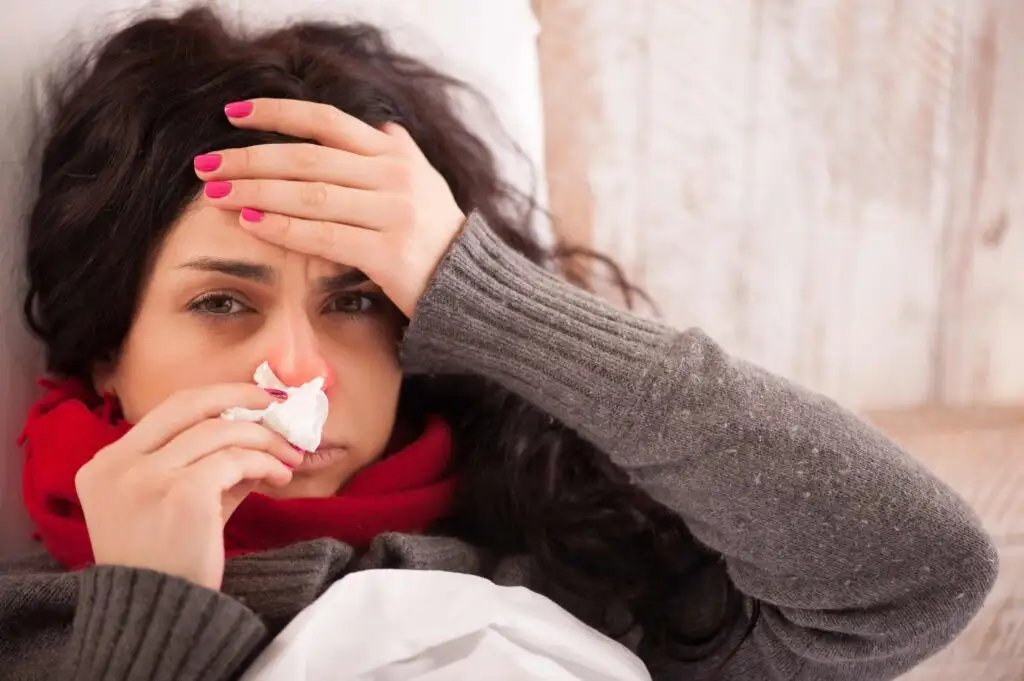Do you have trouble falling or staying asleep? If your sleep insomnia makes you feel fatigued or sleep-deprived to the point where it interferes with your daily life, it may be time to seek help from a doctor. Here are our tips for managing sleep insomnia, including insomnia treatment and remedies, insomnia symptoms, types of insomnia, causes, and how to talk to your doctor about sleep problems.
What Is Insomnia?
Sleep insomnia is a sleep disorder characterised by difficulty falling or staying asleep.
Insomnia Symptoms
People suffering from insomnia may experience:
Disrupted sleep patterns (waking up during the night)
Difficulty falling back asleep
Dissatisfaction with their sleep patterns or sleep quality
Daytime fatigue or tiredness
Low energy
Difficulty with concentration
Mood changes
Decreased performance at work or school
Irritability
Memory problems
Increased errors or accidents
Types Of Insomnia
Acute Insomnia
Acute insomnia is a type of insomnia that occurs due to life circumstances, such as stress. With its brief duration, acute insomnia is a common type of insomnia that many people will experience during their lifetime.
Acute insomnia causes may include:
Significant life stress (including work stress, school stress, financial stress, a job loss or change)
Poor sleep habits, such as an irregular bedtime schedule, an uncomfortable sleep environment or technology use before bed
Physical discomfort
Emotional anxiety
Environmental factors such as noise, light or extreme temperatures (hot or cold) that interfere with sleep
Interference in normal sleep schedule (shift work or jet lag)
Acute insomnia tends to resolve by itself without treatment from a doctor.
Chronic Insomnia
Chronic insomnia is a disrupted sleep pattern that occurs at least three nights per week, for at least three months. This type of insomnia is usually a result of stress, life events or habits that disrupt sleep, leading to a long-term pattern of poor quality or insufficient sleep. Chronic insomnia can be comorbid, meaning it is linked to another medical or clinical issue, such as depression.
Chronic insomnia may be triggered by:
Depression or anxiety
Chronic illness
Chronic stress
Pain or discomfort at night
Significant life stress (death of a loved one, divorce)
Treating the underlying cause of chronic insomnia can resolve insomnia.
How To Talk To Your Doctor About Sleep Problems
Many people assume sleep difficulties are a normal part of life. However, gaining adequate, restful sleep is crucial for your health and wellbeing, so it’s important to bring it up with your doctor if you think you may have insomnia.
Here are some questions you may want to consider before your doctor’s appointment:
What do your sleep difficulties look like? Do you have trouble falling asleep or do you wake up frequently in the middle of the night? How many times a week do you experience this difficulty?
What is your sleep schedule? What time do you go to bed each night? When do you wake up? Do you take naps during the day? Is your weekend sleep schedule different from your weekday schedule?
How do you currently handle your sleeping difficulties? Do you get out of bed, read, watch TV, or turn on your computer?
Do you feel stressed? Have you had any stressful circumstances in your life recently (such as a breakup, work-related stress or financial troubles)?
What is your sleep environment like? Do you sleep alone or with a partner? Is your room dark and quiet? Is your bed comfortable?
How long have you had trouble sleeping? Do you have any medical conditions that may be impacting your sleep?
Insomnia Diagnosis
There is no one definitive test for insomnia. Doctors use many different tools to diagnose and measure insomnia symptoms, including:
A sleep log, which keeps track of details about your bedtime, wake up time and how sleepy you feel at various times of the day
A sleep inventory: An extensive questionnaire that gathers information about your personal health, medical history and sleep patterns
Blood tests: Your doctor may perform certain blood tests to rule out medical conditions such as thyroid problems
An overnight sleep study
All of these tests help your doctor understand your personal experience with insomnia and design the right treatment plan.
Insomnia Remedies: How To Cure Insomnia Naturally
The first step in conquering insomnia is to learn healthy sleep habits and change lifestyle factors that may contribute to the problem. If you’re looking for ways to treat insomnia naturally without medication, here are some ideas to try:
Mindfulness meditation before bed
Exercise
Yoga
Massage
Lavender oil
Magnesium pills
Melatonin pills
Insomnia Treatment
If these approaches are ineffective, your doctor may recommend:
Cognitive-Behavioural Therapy For Insomnia
Cognitive-behavioural therapy for insomnia can help you recognise, control and eliminate negative thoughts or actions that affect your ability to sleep. Strategies include:
Stimulus control therapy – A type of therapy that aims to eliminate factors that condition your mind to resist sleep. As part of this therapy, you may be advised to set a consistent bedtime and wake time, avoid naps, use the bed only for sleep and leave the bedroom if you can’t go to sleep within 20 minutes, only returning when you feel sleepy.
Relaxation techniques – Progressive muscle relaxation and breathing exercises may help you control your breathing, heart rate, muscle tension and mood so that you can relax, reducing your anxiety at bedtime.
For more advice on sleep insomnia, including insomnia causes and treatment, book an appointment with a GP at our state of the art clinics today or contact us on (07) 3711 2880.
7 Foods That Naturally Reduce Cholesterol
Have you recently been diagnosed with high cholesterol? Do you have a family history of high cholesterol? Are you looking for ways to achieve lower cholesterol, but you’re worried that changing your diet means eating boring, bland and tasteless foods? Or you’re concerned that you’ll need to spend hours in the kitchen preparing and cooking…
Reduce Your Risk Of Catching Influenza
No one wants to get sick and there are a number of things you can do to protect yourselfagainst influenza: Get Flu Facts Influenza = the flu Commonly known as ‘the flu’, influenza is a highly contagious disease that can be serious, debilitating and affect the whole body. The flu is caused by a particular…
- « Previous
- 1
- …
- 18
- 19
- 20



